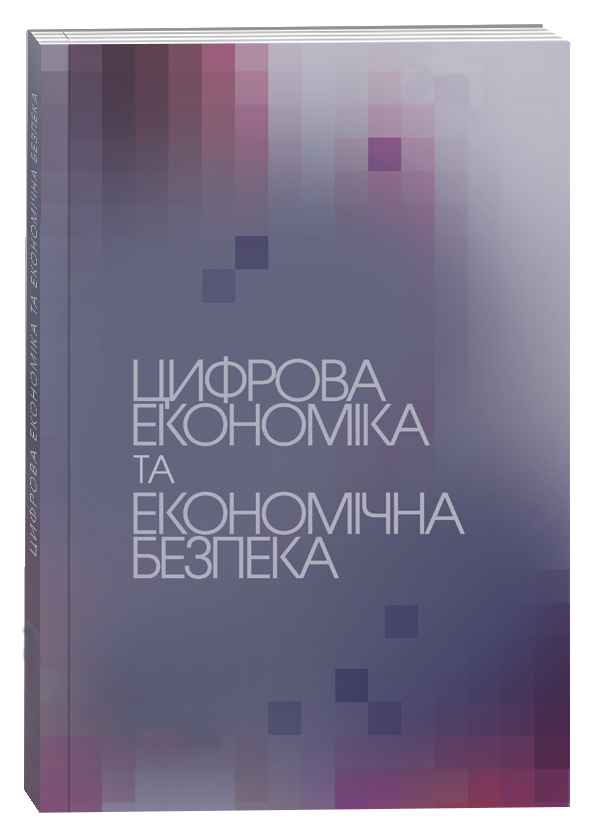PROSPECTS OF IMPLEMENTING SMART CONTRACTS IN SETTLEMENT WITH SUPPLIERS AND CREDITORS IN THE SPHERE OF FOREIGN ECONOMIC ACTIVITY
Abstract
The article examines the theoretical and practical aspects of implementing smart contracts in the processes of settlements with suppliers and creditors. Emphasis is placed on the analysis of the key characteristics of smart contracts, in particular autonomy, self-execution and immutability, which determine their effectiveness and reliability in modern financial and economic relations. The technological basis of the functioning of smart contracts is revealed, the decisive role of blockchain and decentralized systems in ensuring transparency, security and stability of transactions is emphasized. A comparative analysis of smart contracts and traditional legal contracts is carried out, focusing on the legal and technical aspects of their application, which made it possible to determine the advantages and disadvantages of each approach. Particular attention is paid to studying the advantages of using smart contracts in settlements with suppliers and creditors, reducing operating costs by eliminating intermediaries, increasing the transparency of financial transactions, automating the fulfillment of contractual obligations and minimizing credit risks. The key challenges and risks that hinder the large-scale implementation of smart contracts are analyzed, including legal barriers due to the lack of unified legislation, technological risks associated with possible code errors and issues of scalability of blockchain networks, the complexity of integrating smart contracts into traditional business processes, as well as socio-ethical aspects related to the impact on the labor market and the need to develop new digital competencies. The article outlines the prospects for the development and integration of smart contracts into financial calculations, emphasizing the importance of the evolution of the regulatory framework and the harmonization of legislation. It is concluded that the effective integration of smart contracts into contractual relations between suppliers and creditors is possible under the condition of a comprehensive approach that involves the elimination of legal and technological barriers, the formation of an appropriate regulatory framework, the improvement of technical solutions and an increase in the level of digital literacy of subjects of financial relations.
References
Tytenko L.V., Bohdan S.V. Software and information support for business analysis in enterprise management. Modern Economics. 2020. Vol. 20. Pр. 272–277.
Варавка В.М. Смарт-контракт як форма цивільно-правового договору. Вісник Київського національного університету імені Тараса Шевченка. Юридичні науки. 2019. Вип. 4 (111). С. 15–20
Дяків А.В. Перспективи використання смарт-контрактів для оптимізації бізнес-процесів та державного управління в Україні в умовах воєнного стану. Економічний аналіз. 2023. Том 33. № 4. С. 300–309
Іванов А.М., Шмига В.О. Смарт-контракти у договірних відносинах: реалії та перспективи використання. Юридичний науковий електронний журнал. 2022. № 4. С. 150–152
Краєвський В.М., Скорик О.В. Інституційна трансформація механізмів обліково-аналітичного супроводу зовнішньоекономічних операцій. Галицький економічний вісник. 2025. Том 92. № 1. С. 67–76
Скорик М.О., Марченко О.І. «Smart cities» та «urban-tech» екосистеми як драйвери сталого розвитку міст і територій. Цифрова економіка та економічна безпека. 2024. № 5 (14). С 91–98
Смірнов І.С. Перспективи застосування смарт-контракту як засобу забезпечення виконання зобов’язань. Юридичний науковий електронний журнал. 2023. № 6. С. 189–191
Tytenko L.V., Bohdan S.V. (2020) Software and information support for business analysis in enterprise management. Modern Economics, vol. 20, рр. 272–277.
Varavka V.M. (2019) Smart-kontrakt yak forma tsyvilno-pravovoho dohovoru [Smart contract as a form of civil law contract]. Visnyk Kyivskoho natsionalnoho universytetu imeni Tarasa Shevchenka. Yurydychni nauky, vol. 4 (111), pp. 15–20 (in Ukrainian).
Diakiv A.V. (2023) Perspektyvy vykorystannia smart-kontraktiv dlia optymizatsii biznes-protsesiv ta derzhavnoho upravlinnia v Ukraini v umovakh voiennoho stanu [Prospects for the use of smart contracts for optimizing business processes and public administration in Ukraine under martial law]. Ekonomichnyi analiz, vol. 33, no. 4, pp. 300–309 (in Ukrainian).
Ivanov A.M., Shmyha V.O. (2022) Smart-kontrakty u dohovirnykh vidnosynakh: realii ta perspektyvy vykorystannia [Smart contracts in contractual relations: realities and prospects of use]. Yurydychnyi naukovyi elektronnyi zhurnal, no. 4, pp. 150–152 (in Ukrainian).
Kraievskyi V.M., Skoryk O.V. (2025) Instytutsiina transformatsiia mekhanizmiv oblikovo-analitychnoho suprovodu zovnishnoekonomichnykh operatsii [Institutional transformation of the mechanisms of accounting and analytical support of foreign economic operations]. Halytskyi ekonomichnyi visnyk, vol. 92, no. 1, pp. 67–76
Skoryk M.O., Marchenko O.I. (2024) “Smart cities” ta “urban-tech” ekosystemy yak draivery staloho rozvytku mist i terytorii [“Smart cities” and “urban-tech” ecosystems as drivers of sustainable development of cities and territories]. Tsyfrova ekonomika ta ekonomichna bezpeka, no. 5 (14), pp. 91–98 (in Ukrainian).
Smirnov I. S. (2023) Perspektyvy zastosuvannia smart-kontraktu yak zasobu zabezpechennia vykonannia zobov’iazan [Prospects for the application of smart contracts as a means of ensuring the fulfillment of obligations]. Yurydychnyi naukovyi elektronnyi zhurnal, no. 6, pp. 189–191 (in Ukrainian).
